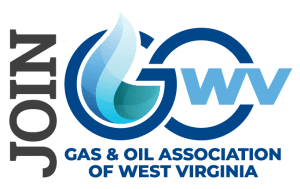By Charlie Burd
November 22, 2021
Consumers across the world are expecting to potentially pay more for energy this winter, and while many factors are contributing to global price fluctuations, America’s position as the world’s largest energy producer should be leveraged to ease — and avoid — this situation both at home and abroad.
Now the nation’s fifth largest energy producer, natural gas production in West Virginia has grown almost 770 percent during the last decade. In 2020, despite market uncertainties amid the coronavirus pandemic, state data shows natural gas and oil production increased more than 14 and 10 percent, respectively, compared to 2019 levels.
And regionally, if the Appalachian Basin (consisting of Ohio, Pennsylvania, and West Virginia) were a country, we would be the third largest natural gas producer in the world – only behind Russia and the rest of the United States.
In addition to the industry being the state’s top-paying sector and supporting roughly 82,000 jobs, this growth has saved U.S. households, manufacturers, and businesses more than $1 trillion in energy costs since 2008.
And to be clear, the ongoing energy crunch is not due to a lack of supply. As market expert Daniel Yergin put it plainly to Bloomberg, “The U.S. has lots of natural gas.”
Mr. Yergin is absolutely right. While commodity prices constantly ebb and flow, America’s readily available shale reserves provide us with the flexibility to keep prices steady and maintain uninterrupted service to homes, businesses, and hospitals.
With that being said, energy infrastructure delays and policies that ignore the fundamental need for natural gas and oil, like those we have seen in Europe and parts of the United States, force consumers to bear the burden and put our energy security at risk.
But there are signs of hope, even in California, where they are beginning to recognize the need for natural gas. After years of resisting fossil fuel development and related grid reliability issues, the state’s public utility commission is stocking up its natural gas supply heading into winter. While likely a flash in the pan, the Golden State’s move is a tacit acknowledgment of the reliability provided by natural gas.
However, bumping up production does not automatically mean supply is meeting demand. In an interview with CNBC, EQT CEO Toby Rice recently told analysts, “If we had more access to more pipelines in this country, the U.S. shale industry could help alleviate any energy shortages,” adding that “this is a self-inflicted problem that is completely unnecessary.”
Building more pipelines and related energy infrastructure, such as export terminals, enhances our ability to distribute this plentiful energy source domestically and globally, helping to reduce worldwide emissions, build a stronger and more flexible electric grid, grow our economy, and enhance America’s ties with foreign allies — all while creating good-paying jobs for hardworking American families.
Locally, projects like the Mountain Valley Pipeline have unfortunately experienced numerous in-service delays due to burdensome legal challenges and construction blockades from anti-fossil fuel activists. Mountain Valley, which will deliver much-needed natural gas to Virginia and North Carolina, hopes to be operational next summer but faces many hurdles before completion.
Pipelines are the safest and most efficient way of transporting energy resources, a fact that has been proven by regulators, safety engineers, and independent experts. Especially now, when lagging pipeline infrastructure is contributing to rising energy prices both here and abroad, companies developing energy infrastructure need efficient permit reviews and regulatory certainty in their efforts to develop and construct the energy conduits that connect resources from where they are produced to where they are needed.
West Virginia’s shale operators are producing the energy that’s alleviating global energy poverty and helping to decarbonize our economy. All the benefits here — cost savings, job and economic growth, and environmental progress – can be shared with the world, so long as we recognize the importance of this world-class energy resource.
Charlie Burd is executive director of the Gas & Oil Association of West Virginia, based in Charleston.
https://www.theintelligencer.net/opinion/local-columns/2021/11/alleviate-the-energy-crunch/

